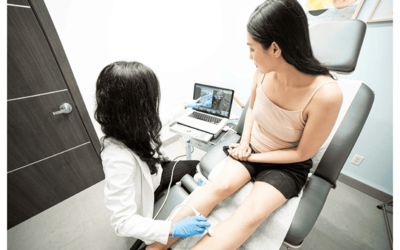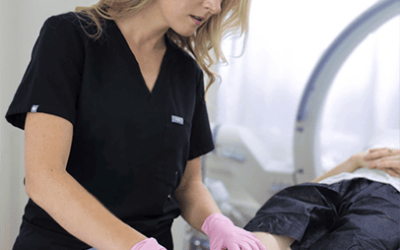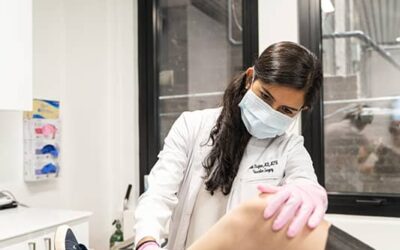How To Prevent Varicose Veins? 10 Lifestyle Measures To Mitigate Risk
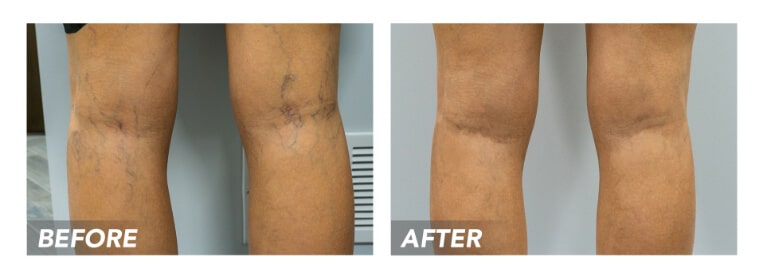
How to prevent varicose veins?
Varicose veins are dilated, bulging blood vessels that protrude from the skin’s surface. Varicose veins are dilated veins caused by the accumulation of blood in leg veins and improper blood circulation. The primary root cause of varicose veins is a medical condition known as chronic venous insufficiency, wherein the collapse of vein valves leads to the accumulation of blood in leg veins. The continued accumulation of blood in leg veins leads to vascular dilation and the formation of bulging varicose veins.
Generally speaking, there’s no surefire way to prevent varicose veins because venous insufficiency can be caused by numerous factors, such as gender, age, obesity, pregnancy, prolonged periods of sitting or standing still, and certain occupations. While there’s no sure way to prevent varicose veins, you can take active steps to mitigate the risk. Below, we describe some lifestyle changes to minimize the risk of varicose veins and venous insufficiency:
- Exercise regularly: Regular exercise improves circulation, which can help to prevent varicose veins. Walking, cycling, and swimming are good activities to try.
- Maintain a healthy weight: Being overweight puts additional pressure on your veins, which can increase your risk of varicose veins. Maintaining a healthy weight can reduce this risk.
- Avoid standing or sitting for long periods: Prolonged standing or sitting can cause blood to pool in your legs, which can increase the risk of varicose veins. If you have a job that requires you to stand or sit for long periods, take frequent breaks and stretch your legs to improve blood flow.
- Wear comfortable shoes: High heels and tight shoes can constrict your veins and make it harder for blood to flow properly. Wear comfortable, low-heeled shoes to help prevent varicose veins.
- Elevate your legs: Elevating your legs above heart level can improve circulation and reduce the risk of varicose veins. Try elevating your legs for a few minutes each day.
- Avoid tight clothing: Tight clothing, especially around the waist and legs, can constrict your veins and make it harder for blood to flow properly. Wear loose, comfortable clothing.
- Eat a healthy diet: A diet rich in fruits, vegetables, and whole grains can improve circulation and reduce the risk of varicose veins. Avoid processed foods and foods high in salt, as they can contribute to swelling and increase the risk of varicose veins.
- Don’t cross your legs: Crossing your legs can constrict your veins and make it harder for blood to flow properly. Try to avoid crossing your legs when sitting to prevent varicose veins.
- Stay hydrated: Drinking plenty of water can improve circulation, strengthen your vein valves, and reduce the risk of varicose veins. Aim for at least eight glasses of water per day.
- Quit smoking: Smoking can damage your veins and increase the risk of varicose veins. Quitting smoking can reduce this risk.
How to get rid of swollen varicose veins?
If you have swollen varicose veins, you may look for ways to reduce their appearance and alleviate discomfort. There are several treatment options available, including:
- Radiofrequency Ablation: This procedure uses radiofrequency energy to heat and destroy the affected vein. A small needle is inserted into the vein, and a local anesthetic is used to numb the area. The radiofrequency energy causes the vein to collapse and seal shut.
- Endovenous Laser Ablation: This procedure uses laser energy to seal the affected vein. A small incision is made in the skin, and a laser fiber is inserted into the vein. The laser energy is then delivered through the fiber, causing the vein to collapse and seal shut.
- VenaSeal: This procedure uses a special adhesive to seal the affected vein. A small needle is inserted into the vein, and the adhesive is delivered through the needle. The adhesive seals the vein shut, causing it to collapse and get reabsorbed by the body.
- Foam Sclerotherapy: This procedure involves injecting a special foam into the affected vein. The sclerosing foam irritates the vein’s walls, turning it into hardened scar tissue that is eventually metabolized and reabsorbed by the body.
- Ambulatory Phlebectomy: This procedure involves removing the affected veins through small incisions on the skin’s surface. This procedure instantly removes superficial varicose veins, and the incision marks gradually heal and fade away.
These minimally invasive varicose vein treatments effectively reduce the appearance of swollen varicose veins and alleviate any discomfort they may cause. The best option for you will depend on your condition’s severity and overall health. Your vein doctor will recommend the best treatment option based on your specific needs. It’s also important to maintain a healthy lifestyle and avoid activities that may worsen your condition, such as standing or sitting for long periods, wearing tight clothing, and crossing your legs when sitting.
Your minimally invasive spider vein and varicose vein treatments in New Jersey
If you’re looking for varicose vein treatments, you may consider New Jersey Vein Treatments, a group of medical centers specializing in minimally invasive varicose vein treatments in New Jersey. Our team is led by board-certified vein doctors who are highly skilled and experienced in treating varicose veins. We offer a range of minimally invasive procedures designed to be as comfortable and convenient as possible for patients.
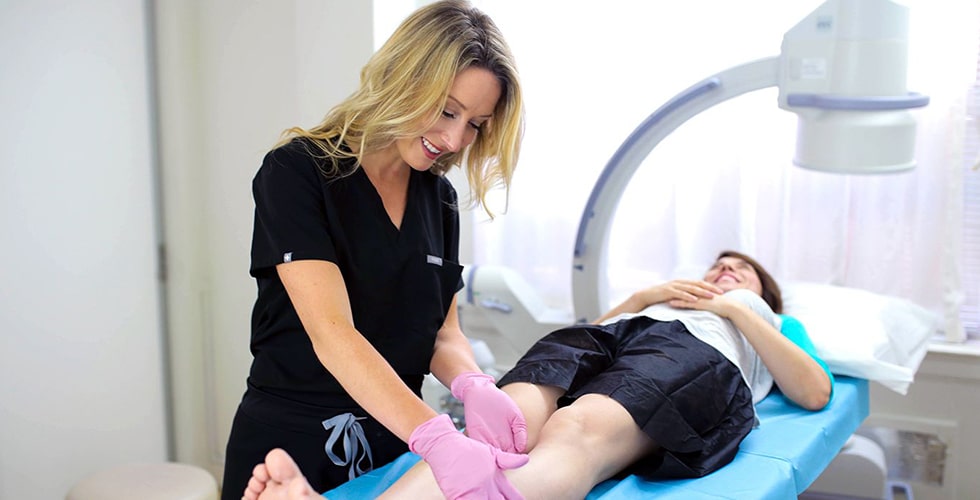
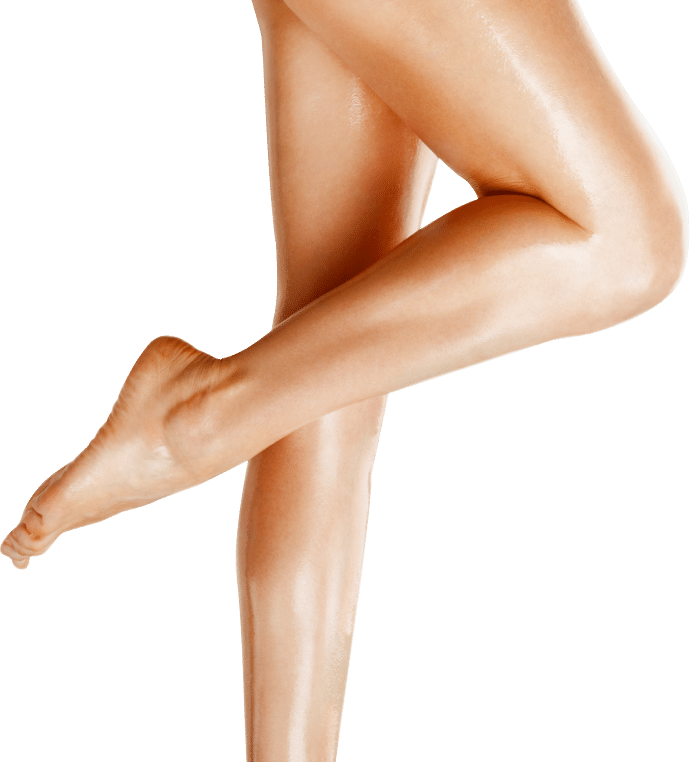
BOOK AN APPOINTMENT
Do you have any symptoms? Consult now with one of the Best Vein Specialist in New Jersey
Your information is encrypted and secure. By registering you confirm that you accept Terms and Conditions and Privacy Policy
One of the benefits of choosing New Jersey Vein Treatments is that we offer free insurance verification. We will work with your insurance company to ensure that your treatment is covered and that you receive optimal insurance coverage. We have state-of-the-art offices throughout New Jersey, including Woodland Park, Clifton, Paramus, Woodbridge, and Scotch Plains. Please schedule an appointment at your nearest center for vein treatment in New Jersey.
NJ Vein Doctors
Meet our team of New Jersey Vein Treatment Specialists
Vein Treatments are covered by most major medical insurances, including Medicare. Call us today to verify your insurance for FREE >
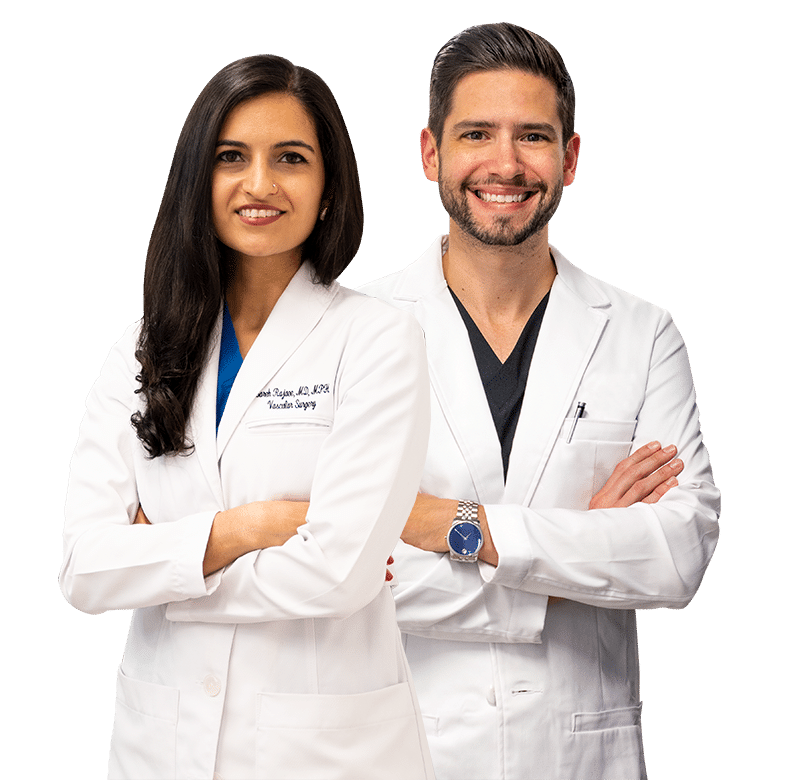
Meet our Team of Top Vein Specialists in New Jersey
Contact us
CALL US
Speak instantly with one of our team members; they will answer any questions you may have regarding insurance coverage, booking an appointment and our vein treatment locations. (973) 447-3227
BOOK APPOINTMENT
Visit our Book Appointment page and instantly request an appointment at the New Jersey vein center. We offer Free Insurance Verification before your appointment.
